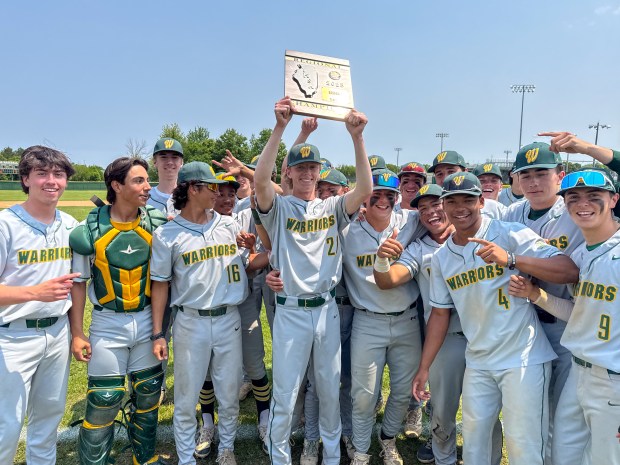The Aurora City Council is set to vote on a contract for a pilot program to give kindergarten students in the city a $50 savings account to go toward education after high school.
Known as Aurora Promise, the program is based on a similar one that has been going on in San Francisco for a number of years.
There are 128 similar programs in 38 states across the country, serving about five million children, Aurora officials said. This program would be the first in Illinois.
“This is still a new idea; we’re doing a pilot program,” said Mayor Richard Irvin, who announced the program earlier this year. “We start small, and get bigger where we can include every child and every family that wants to participate.”
At next week’s regular council meeting, aldermen will vote on a 20-year contract of not more than about $1.96 million with Operation Hope to manage the program. Operation Hope manages a similar program in Atlanta, and was the only organization to respond to the city’s request for proposals to manage the program.
The city would seed the beginnings of savings accounts for post-secondary education for every kindergarten student in the city with $50. It would be for any post-secondary schooling – college or a trade school.
The plan would be for parents to then begin adding to the savings over the years, and the city would look for corporate sponsors to help.
Viviana Ramirez, Aurora’s chief Community Services officer, and Martha Paschke, Innovation and Strategy director for the city, said the idea of the program is to incentivize people to save money, and get them in that habit.
“It underscores the importance of planting a seed to nurture that belief,” Ramirez said. “It’s not only planning for the children, it’s educating the parents.”
Paschke said the oldest program in the country is in San Francisco, where the first group of kids in it just turned 18, and has its first high school graduates. The program shows more college enrollment.
A study by the Center for Social Development at the George Warren Brown School of Social Work at Washington University in St. Louis showed that even when families have saved less than $500, low- to moderate-income children are three times more likely to enroll in college and more than four times more likely to graduate from college than those with no savings account.
“It’s not necessarily about the amount of funds they have, but the habit of savings,” Paschke said.
Paschke said Operation Hope is “very qualified and a good fit” to manage the Aurora program.
“We can benefit from their experience,” she said. “We hope to learn from them over time.”
Mike Smith, vice president of finance and accounting for Operation Hope, said the organization will “do the exact same thing” in Aurora as it does in Atlanta.
The pilot would start strictly in West Aurora School District 129 and East Aurora School District 131. West Aurora has just under 500 kindergarten students who live in the city, and there are about 600 kindergarten students in the East Aurora district.
Eventually, the program would include all six school districts in the city. Part of the Oswego School District, Indian Prairie School District, Batavia School District and the Kaneland School District are in Aurora.
The program would be only for public school children, officials said. While there is no income guideline for Aurora Promise (some of the other programs do have a guideline), the target is low-income students and public schools serve a higher number of them.
Also, the program requires a partnership between the districts and the city. One of the main parts of that is data sharing by the district with the city, which has to be worked out.
Ald. Patty Smith, 8th Ward, who represents an area entirely in Indian Prairie School District 204, said she thinks the idea is “a wonderful program” and she would “truly support” it, but also said she hopes the city quickly moves to include the other school districts.
“We have schools that are in need,” she said.
Paschke said organizers are “very aware of students” in the other school districts, and plan to include them after the first 18 months of the pilot program.
Ald. Michael Saville, 6th Ward, asked about students who move into the different districts after their kindergarten year. Paschke said the goal is to have every student included, so organizers will have “to consider” what to do about students moving in.
As another part of the pilot, parents will have to opt-in to it to begin with. In fact, Paschke said one reason city staff pushed through consideration of the contract straight to the City Council Committee of the Whole was to get the opt-in selection on school registration forms for the 2025 school year.
The reason for making it opt-in is to make parents aware of the program. Eventually, officials want it to be an opt-out program – students would automatically be in unless they opted out.
The initial funding for the savings part of the program would come from money the city got as a local share from Columbia Care, when it opened the first marijuana cultivation facility in Aurora about nine years ago.
The money was a contribution related to when the original company that opened the facility, Curative Health, was sold early in Irvin’s first term as mayor. The amount is about $145,000, which would seed the program, Irvin has said.
Eventually, the city would look for corporate donations for the program, he said.
slord@tribpub.com




